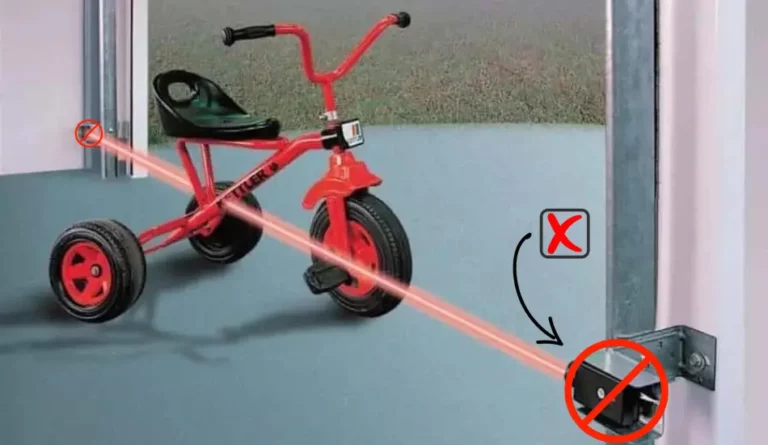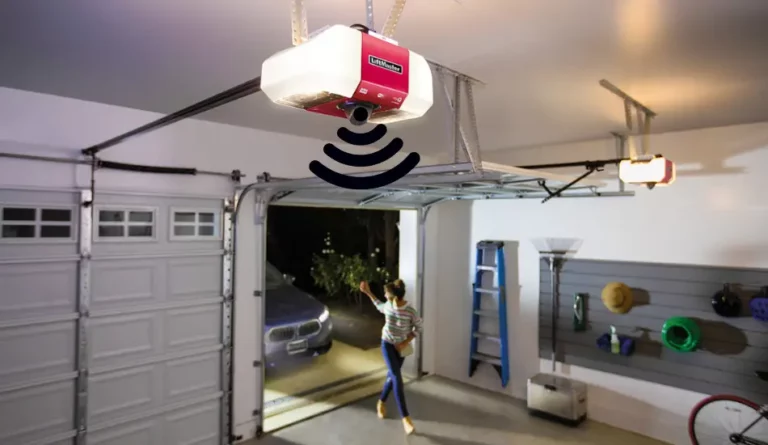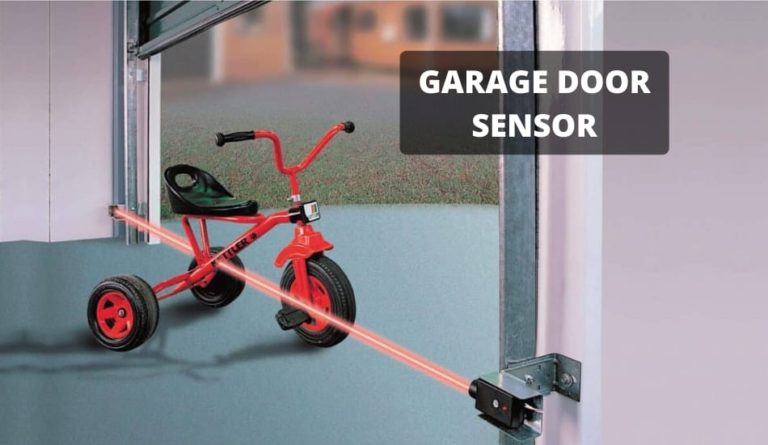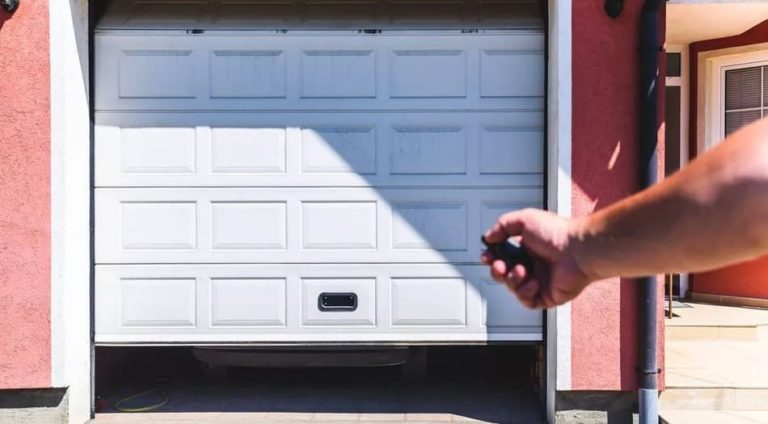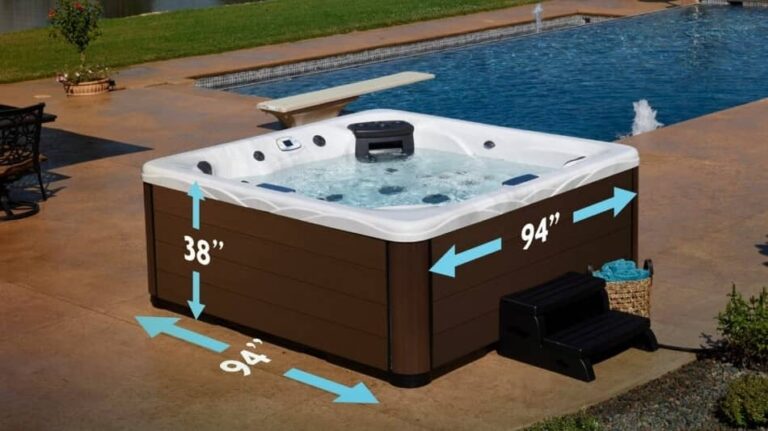Will Pool Water Kill Grass? Expert Explains
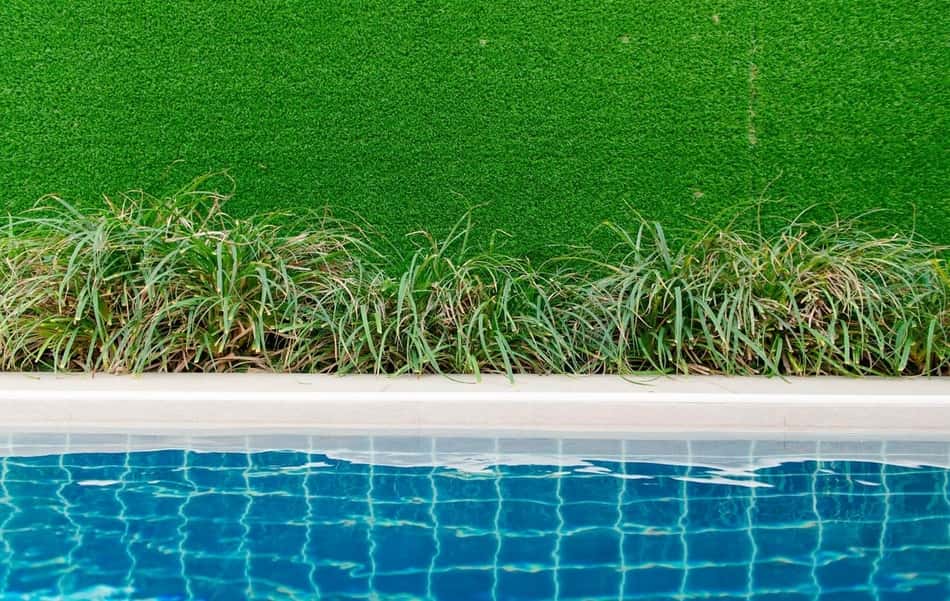
Jumping into the pool with a splash is always enjoyable but can result in water splashing out to the garden grass. So, does pool water harm your grass, and can it kill it? When there’s a lot of it, like when your pool overflows or when you’re emptying it, it might cause harm to your grass. In this article, we’ll talk more about this topic. So, let’s start!
Will Pool Water Kill Grass? Yes, pool water can harm and kill grass if drained too often or in large amounts. High chlorine levels in the pool can disrupt the soil’s pH balance, and this can damage the grass and nearby plants. Ensuring chlorine levels are low before emptying the pool water on the grass is important.
A few water drops from a pool on the grass won’t really hurt your grass. But if a large amount of water from the pool comes in touch with the grass, that’s a different story. Before emptying a large volume of water on the grass, check that the chlorine level is at or below 0.1 parts per million.
If it’s more than that, it could harm your grass because of the chemicals. Pure chlorine is strong and can harm plants and grass. Also, if you accidentally spill some on your grass, maybe while adjusting your pool’s pH levels, make sure to quickly water that spot with clean water to dilute the chlorine.
Table of Contents
How Will Chlorine Water Affect the Grass?
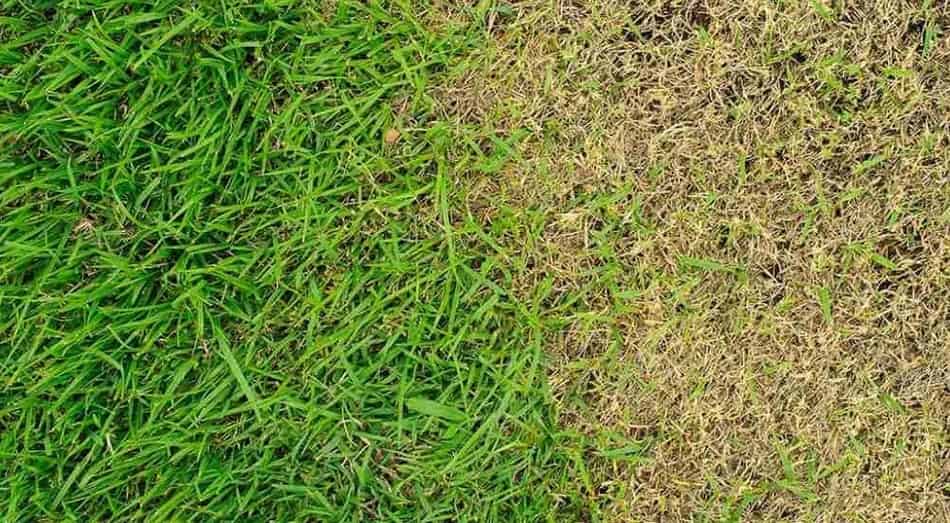
Chlorine water will kill the grass. If the water has more than 0.1 parts per million of water, it’s not good for grass or plants. People use chlorine in pools because it’s great for eliminating microbes and bacteria. But too much of it can really hurt your grass.
Usually, a pool’s chlorine level is between 2 to 4 parts per million of water (we often say “ppm” for short). The experts at the CDC suggest keeping it closer to one ppm since it’s gentler for both people and grass. If you have more than 10 ppm of chlorine, it might even irritate your skin. But don’t worry, a little splash from someone jumping into the pool won’t harm your grass if the chlorine is at these levels.
Remember, the stronger the chlorine solution is in the pool, the more harm it can do. If you ever spill any pool water on your grass, make sure you spray the grass with clean water afterward. This will protect your grass.
Related Article: How Much Bleach To Shock A Pool? Make Swimming Safe
Does Saltwater Pool Water Kill Grass?
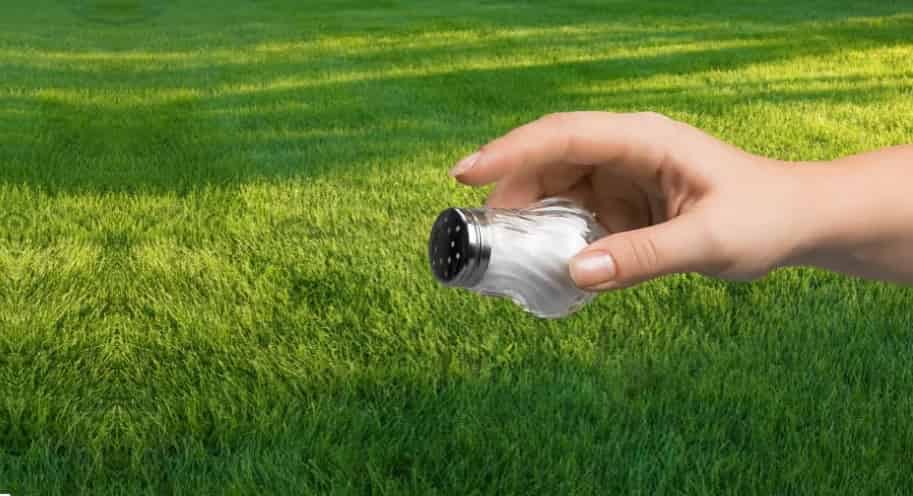
Saltwater can easily damage plants and grass, especially if you pour a lot of it on the grass or if it’s very salty. Generally, the salt in a saltwater pool is kept at a level that shouldn’t hurt your lawn or other greenery when minor spills or splashes occur.
When we talk about natural salt water, like the ocean, it usually contains more than 35 grams of salt per liter. On the other hand, freshwater usually has less than 1 gram in the same amount. A common myth about saltwater pools is that they don’t have any chlorine.
However, that’s not correct. The salt in these pools changes into chlorine with the help of a process called electrolysis. This means a saltwater pool can have about the same chlorine amount as a regular pool with chlorine.
Related Article: How Much Pee Is In Your Swimming Pool?
Can You Pour Pool Water on Grass Safely?
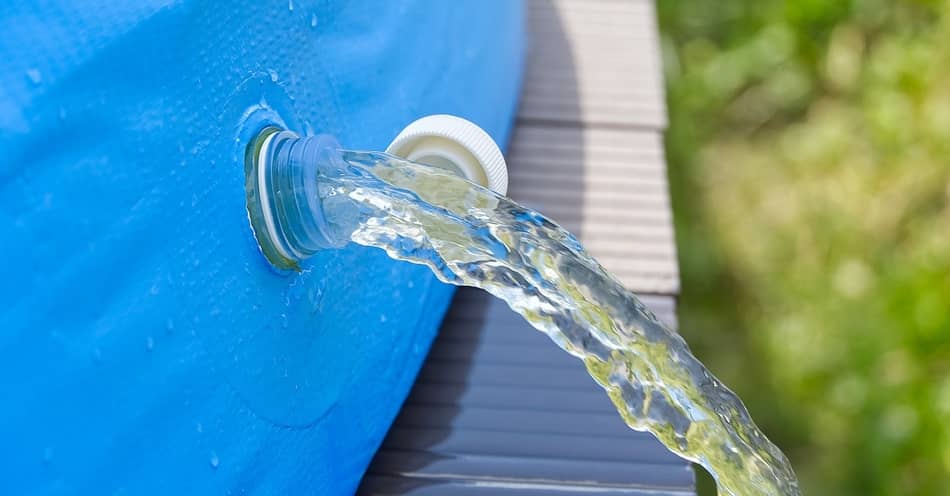
Usually, if you pour water from your pool, hot tub, or any other source of chlorine on your grass, it shouldn’t kill it. To avoid killing the grass, just make sure you don’t do this often, don’t pour all the water in one place, and try to lessen the chlorine amount from what’s normal for pools (between 1 to 4 ppm) to a much lower level. Using pool water to water your grass can be a good idea because grass can handle a bit more chlorine than other plants like trees or flowers.
If you plan to empty your pool, leave the pool cover off for around 10 days. This way you will reduce the chlorine level in the pool with the help of the sun. Don’t add any extra chlorine during these days.
When you start draining the water, move the hose to different spots in your yard so you’re not pouring all the water in one place. It’s also a good idea to take a few days to empty the pool instead of doing it all at once. Following these steps should keep your lawn safe while you use the pool water for watering.
Related Article: Can Hot Tub Water Kill Grass? Explained
Reduce Chlorine Before Drainage
Are you planning to empty your pool but don’t want to waste all that water? You can adjust the chlorine amount in the water, making it suitable for watering plants and grass that can handle some salt. Regardless of your plans for the water, lowering its chlorine level is a smart move for safety reasons.
If the water’s chlorine amount is just slightly above the usual safe levels, don’t add any more chlorine. Since chlorine naturally disappears after some time, especially when exposed to sunlight, you can help speed this up. Use your pool, take a dip, and let the water stay open to the sun to decrease the chlorine in it quickly.
If you want to learn more about this topic, you can watch this YouTube video about how pool water affects grass:
Related Article: How To Clear A Cloudy Pool With Baking Soda?
FAQ: People Also Ask
What happens if you put a pool on the grass?
If you set up a pool over the grass for an extended period, the grass beneath will likely die. However, if you remove the pool during colder months, the grass might recover, especially if you reseed the area.
How often should you drain your pool?
While pools need regular maintenance, emptying them annually or monthly is not essential. Experts typically recommend draining in-ground pools every 5 to 7 years, though it can depend on the pool’s state.
Final Thoughts
If you’re adding chlorine to your pool and spill some onto the grass, quickly water down that spot to dilute the chemical. Chlorinated water is harmful to grass. On the other hand, bits of grass might find their way into your pool, either carried by wind or stuck to your feet. This can mess with your pool’s pH balance if not addressed promptly.
It’s essential to clean your pool often and consistently check the water to ensure its pH level is just right. Keeping these tips in mind makes maintaining harmony between your pool and garden grass simpler, allowing you to enjoy both without much hassle. I hope that this article has helped you.



